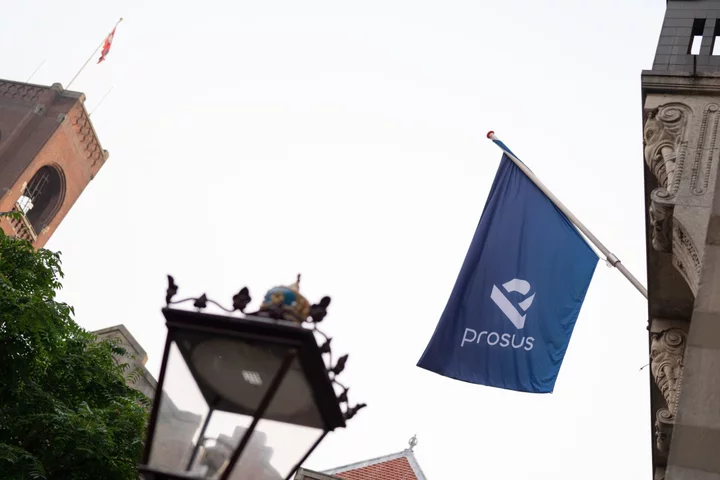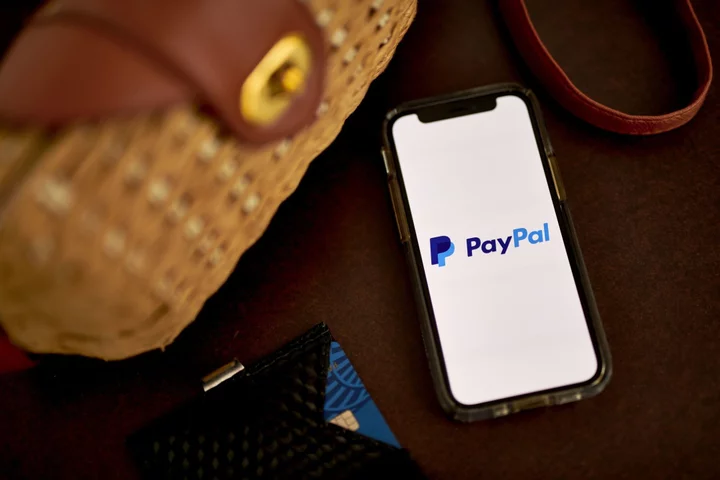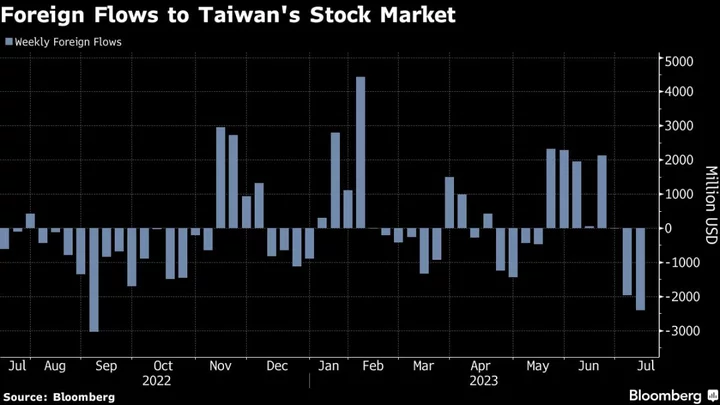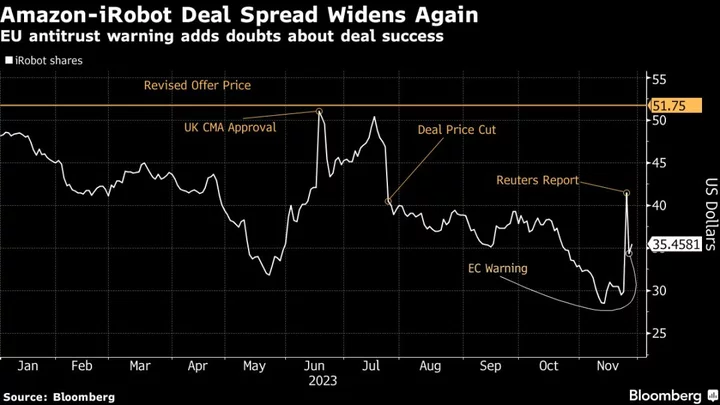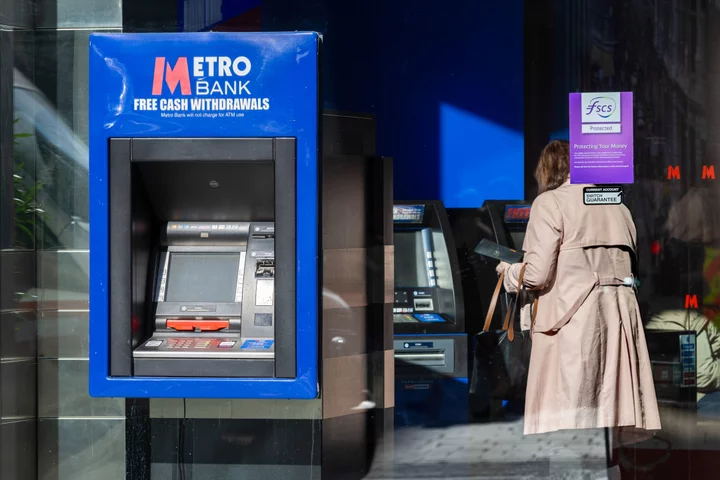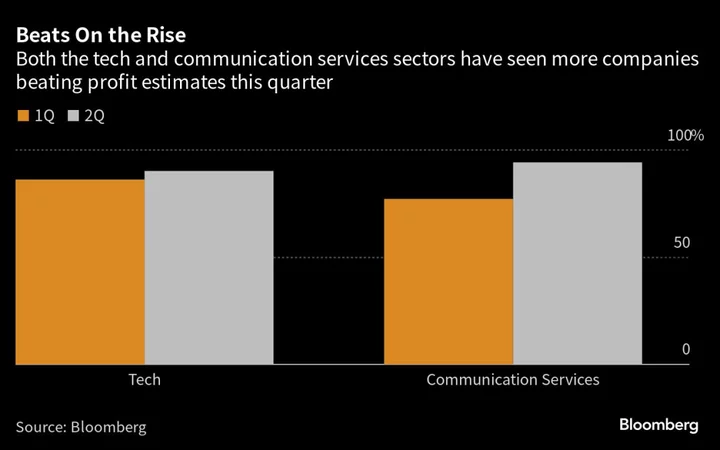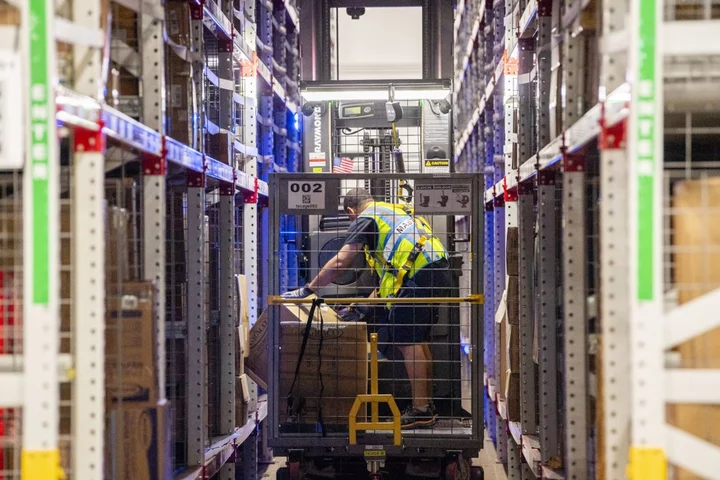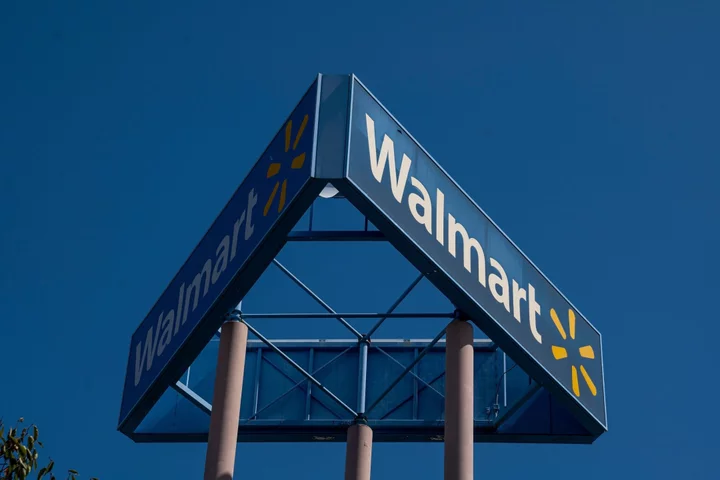Prosus NV and majority owner Naspers Ltd. expect its e-commerce business to become profitable sooner-than-expected.
The business, comprising a portfolio that excludes its Tencent Holdings Ltd. stake, reported a first-half trading loss of $36 million, a $220 million improvement year-on-year, according to a statement published on Wednesday. It’s expected to turn a profit in the second half of 2024, compared with a previous target of the first six months of 2025.
“There has been a lot of hard work over the last 18 months or so to dramatically change the trajectory of our operating business profile,” interim Chief Executive Officer Ervin Tu said in an interview. “There’s no letting our foot off the pedal to meet that goal of profitability and to continue that upwards trajectory.”
Prosus’ push to turn profitable has been driven by earlier cost reductions and improved efficiencies, and underpinned by its core units that include classified advertising, food delivery, payments and fintech.
The group has $15.1 billion of cash and is considering a range of investments, Tu said.
Naspers shares, which have advanced 21% this year, fell 1% at 9:25 a.m. in Johannesburg.
“We will continue to invest in our operating businesses, particularly in the gems in our portfolio such as PayU in India, IFood, Emag and our classifieds businesses such as OLX,” while also considering minority stakes in “exceptional businesses” when opportunities arise, he said. “We will continue to be very disciplined and careful as we consider new opportunities for us.”
Prosus and its Cape Town-based parent Naspers made a block-buster early-stage investment in Tencent in 2001 for $34 million. Since then, the Chinese company’s growth has exploded. That led the group to sell down some of its stake in Tencent and buy back its own shares, in order to close a gap between the sum of its parts, and the value of its stake.
The company said its buyback continues to deliver value and unlocked $25 billion in value to date.
“We are very committed to the buyback,” Tu said. “It’s a durable source of value creation for our shareholders.”
(Updates with CEO comments from third paragraph)

